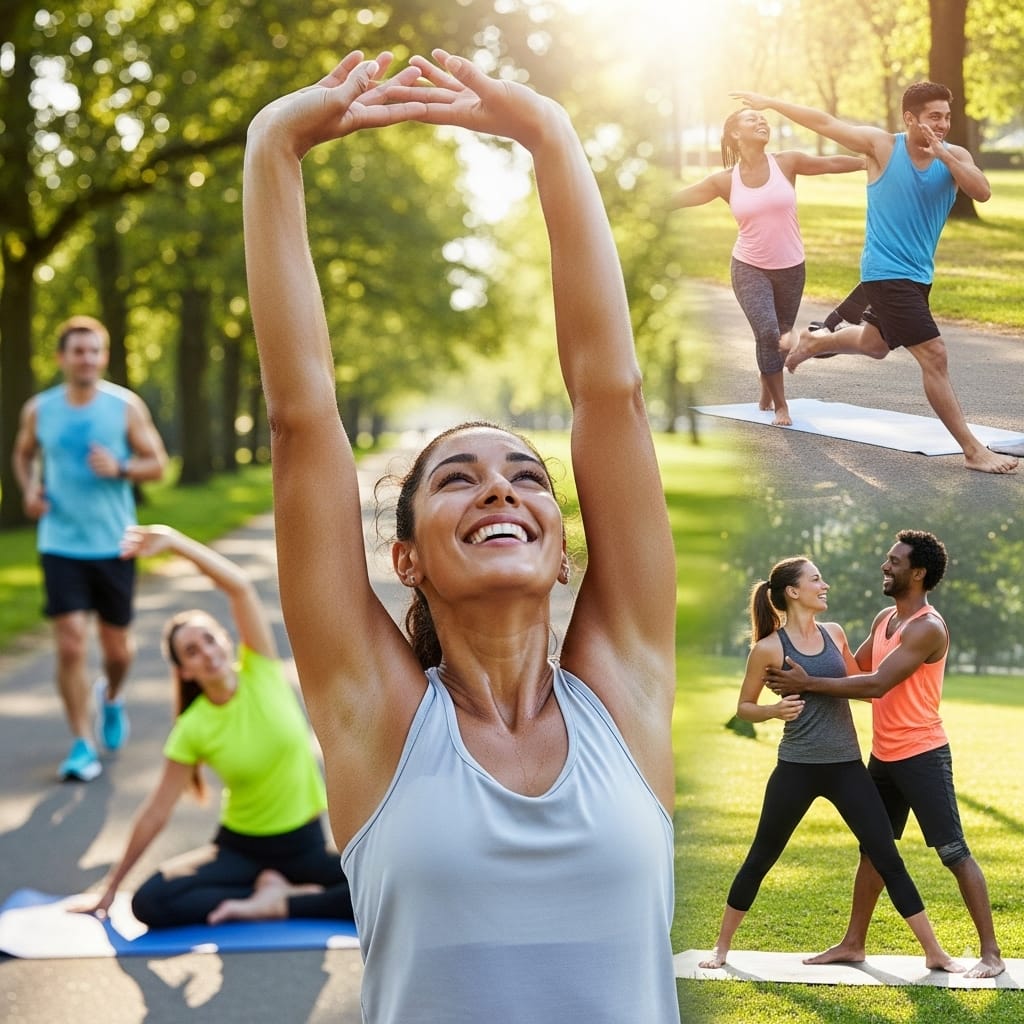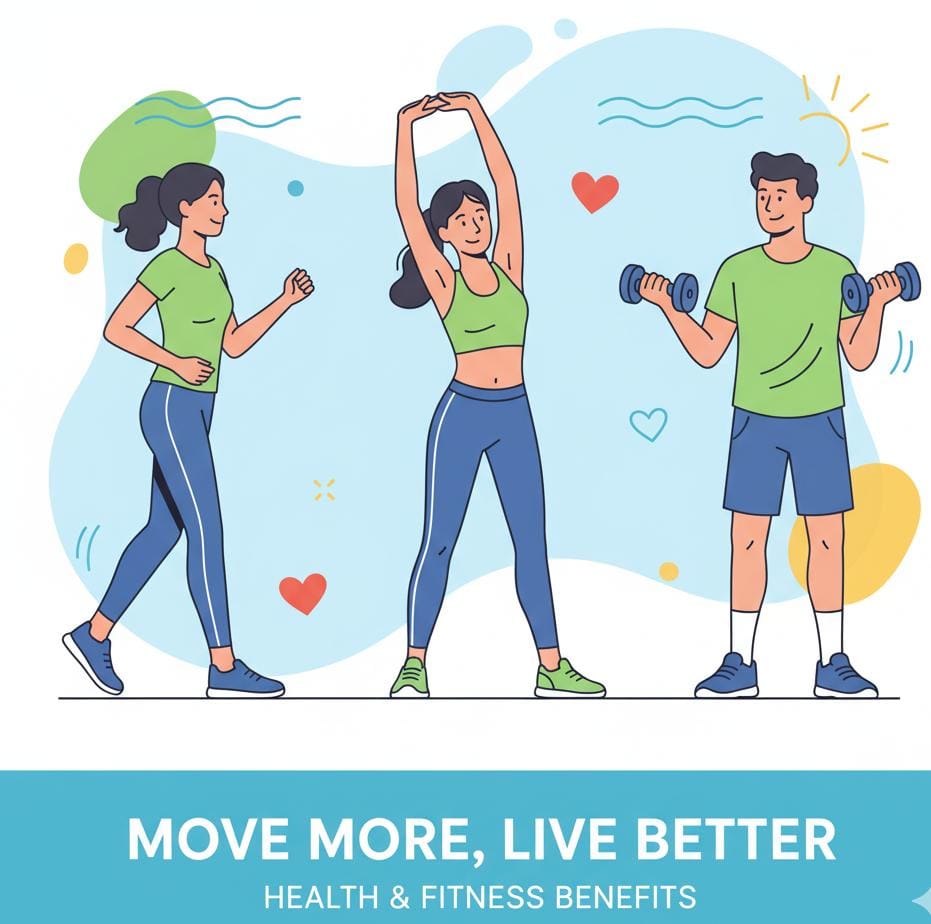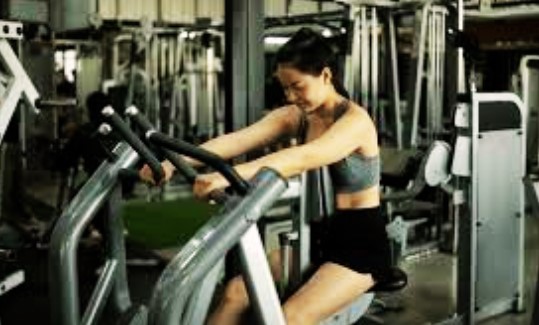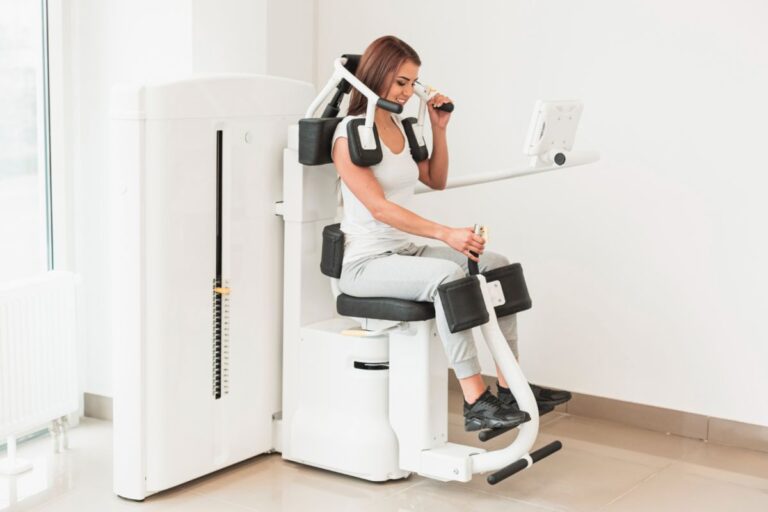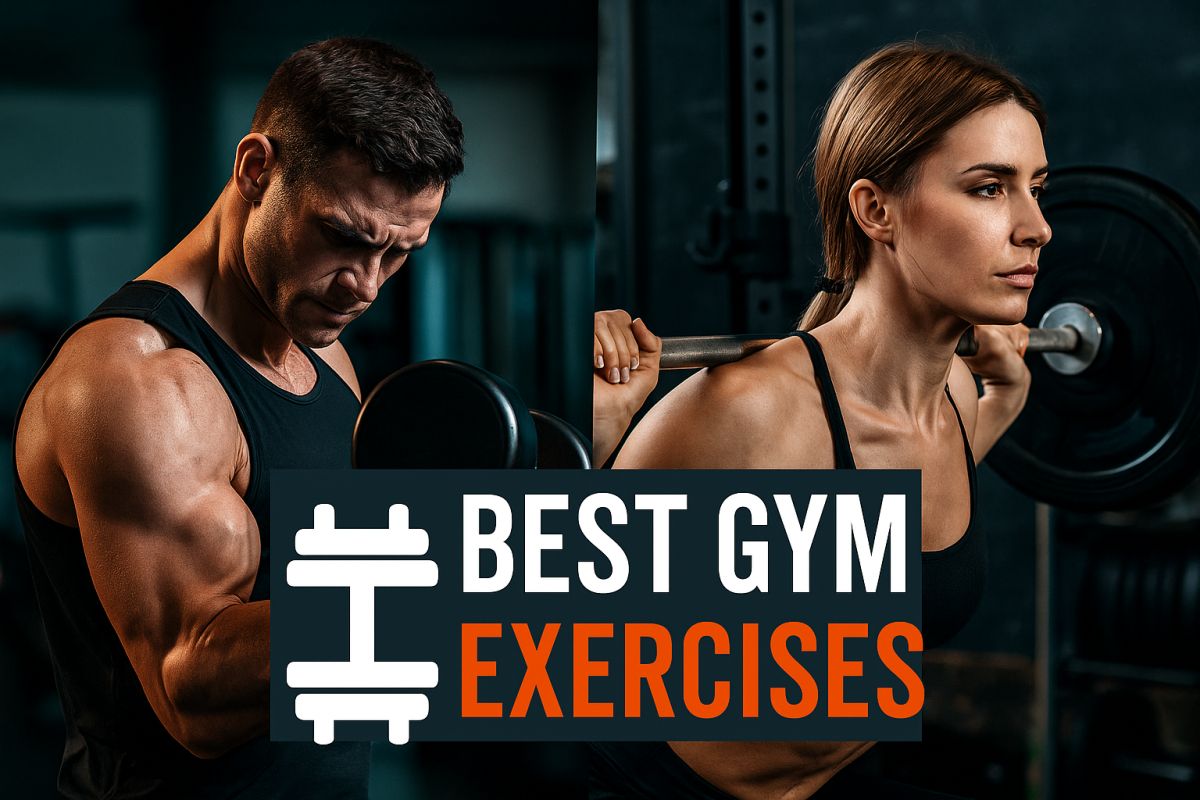Discover the Benefits of Physical Activity for Your Health
|
Getting your Trinity Audio player ready...
|
The Benefits of Physical Activity: How Moving More Improves Your Health and Life
To Staying the benefits of physical activity is one of the most powerful things you can do for your body and mind. In today’s fast-paced world, it is easy to get stuck in a sedentary lifestyle, spending hours at a desk, in traffic, or in front of a screen. This lack of movement, however, can have a profound impact on both your physical and mental wellbeing.
In this Article
- Intro about – The Benefits of Physical Activity
- Why Physical Activity Matters
- The Importance of Movement
- Physical Benefits of Staying Active
- Mental and Emotional Benefits of Physical Activity
- Social and Lifestyle Benefits
- Here is a Summary of Physical Activity Benefits
- Final Thoughts on Staying Active
The great news is that you do not need intense workouts or an expensive gym membership to make a difference. Even small, consistent changes like walking more, stretching, or doing short bodyweight exercises can have a massive impact. This article explores the essential benefits of physical activity and offers practical ways to incorporate it into your daily routine.
The Importance of Movement
Your body is fundamentally designed to move. When you stay active, your muscles, heart, and lungs operate more efficiently. Beyond the obvious physical benefits, regular movement can also:
- Boost your energy levels
- Sharpen your focus
- Significantly improve your mood
Whether you are a student, a professional, a parent, or a retiree, moving your body is one of the most valuable long-term investments you can make in your health.
Physical Benefits of Staying Active
Physical activity offers numerous health advantages that enhance your overall wellbeing. Here are the key benefits:
1. Boosts Heart Health
One of the most significant benefits of physical activity is its support for your cardiovascular system. Regular exercise:
- Strengthens your heart
- Helps lower blood pressure
- Improves overall blood circulation
Activities like brisk walking, cycling, or swimming are highly effective at reducing the risk of heart disease and stroke.
2. Aids in Weight Management
Maintaining a healthy weight is not just about diets about balancing calorie intake with physical movement. Physical activity:
- Burns calories
- Builds lean muscle
- Helps prevent unwanted fat gain
For instance, a 30-minute jog can burn up to 300 calories while simultaneously improving your stamina and endurance.
3. Builds Stronger Muscles and Bones
Engaging in strength training, bodyweight exercises, or resistance movements:
- Promotes bone density
- Enhances muscle strength
- Reduces the risk of osteoporosis and injuries as you age
Simple bodyweight moves like squats or push-ups are an effective way to improve mobility and maintain independence later in life.
4. Strengthens Immunity
The persons who are consistently active tend to experience fewer colds and recover more quickly from illnesses. Movement:
- Increases blood circulation
- Allows immune cells to travel more efficiently throughout the body
- Improves your immune system’s ability to fight off infections
Mental and Emotional Benefits of Physical Activity
Physical activity does wonders for your mental and emotional health. Below are some key benefits:
1. Reduces Stress and Anxiety
When you exercise, your body releases endorphins natural chemicals that:
- Elevate your mood
- Reduce feelings of stress
Even a quick walk after a difficult day can help ease tension and clear your mind.
2. Improves Sleep Quality
Regular physical activity:
- Helps regulate your sleep-wake cycle
- Makes it easier to fall asleep
- Ensures you wake up feeling refreshed
Just 20 to 30 minutes of daily movement can improve your rest, as long as you avoid strenuous activity too close to bedtime.
3. Enhances Brain Function
Exercise increases blood flow to the brain, which in turn:
- Enhances memory
- Improves focus
- Boosts creative thinking
This is particularly valuable for students and professionals who need to stay sharp and productive.
4. Boosts Confidence and Self-Esteem
As your body gets stronger and healthier, your confidence grows. Achieving fitness goals—no matter how small:
- Creates a sense of accomplishment
- Often carries over into other areas of your life
Social and Lifestyle Benefits
Physical activity also enhances your social life and daily habits. Here’s how:
1. Creates Opportunities for Connection
Group classes, team sports, or even walking with a friend can:
- Transform exercise into a fun, social activity
- Make workouts more enjoyable
- Help keep you accountable
2. Encourages Better Habits
When you begin to move your body consistently, it often leads to other positive choices, such as:
- Staying hydrated
- Eating more balanced meals
- Prioritizing rest and recovery
3. Increases Energy and Productivity
One of the most valuable but often-overlooked benefits of physical activity is improved energy. People who stay active tend to:
- Feel less fatigued
- Be more motivated to tackle their daily responsibilities
How Much Physical Activity Do You Need?
Health experts recommend at least 150 minutes of moderate-intensity activity per week. That’s just 30 minutes a day, five times a week, and it can include activities like:
- Brisk walking
- Cycling
- Dancing
- Swimming
- Active household chores
For additional health benefits, be sure to include:
- Strength training at least two times a week (e.g., push-ups, squats, or weightlifting)
- Flexibility and balance exercises like yoga or stretching
Simple Ways to Stay Active Every Day
You do not need a gym membership to reap the rewards of physical activity. Here are a few easy ways to move more throughout your day:
- Take the stairs instead of the elevator
- Walk or cycle short distances rather than driving
- Do a 10 to15 minute bodyweight routine at home
- Stretch during breaks at work or while watching TV
- Join a local sports team, dance class, or walking group
Remember, small efforts add up consistency matters far more than intensity.
Overcoming Common Barriers
It is completely normal to face challenges when starting an active lifestyle. Here are some simple solutions:
- Lack of time: Break up your workouts into shorter, 10-minute sessions
- Low motivation: Find a workout buddy or set small, realistic goals to stay on track
- Limited space or equipment: Try bodyweight routines like planks, lunges, or yoga from the comfort of your home
- Health conditions: Always consult a doctor to find personalized and safe activities for you
Here is a Summary of Physical Activity Benefits
The following table summarizes the key benefits of physical activity outlined in this article, categorized by physical, mental/emotional, and social/lifestyle impacts.
| Category | Benefit | Description |
|---|---|---|
| Physical | Boosts Heart Health | Strengthens heart, lowers blood pressure, improves circulation, reduces heart disease risk. |
| Physical | Aids in Weight Management | Burns calories, builds muscle, prevents fat gain (e.g., 30-min jog burns ~300 calories). |
| Physical | Builds Stronger Muscles and Bones | Promotes bone density, muscle strength, reduces osteoporosis risk via exercises like squats. |
| Physical | Strengthens Immunity | Enhances blood circulation, boosts immune cell efficiency, reduces illness frequency. |
| Mental/Emotional | Reduces Stress and Anxiety | Releases endorphins, eases tension (e.g., a quick walk after a tough day). |
| Mental/Emotional | Improves Sleep Quality | Regulates sleep-wake cycle, improves rest with 20–30 min daily movement. |
| Mental/Emotional | Enhances Brain Function | Increases blood flow to brain, improves memory, focus, and creativity. |
| Mental/Emotional | Boosts Confidence and Self-Esteem | Builds confidence through fitness goals, carries into other life areas. |
| Social/Lifestyle | Creates Opportunities for Connection | Group classes or sports make exercise fun and foster accountability. |
| Social/Lifestyle | Encourages Better Habits | Leads to hydration, balanced meals, and prioritizing rest/recovery. |
| Social/Lifestyle | Increases Energy and Productivity | Reduces fatigue, boosts motivation for daily tasks. |
Frequently Asked Questions (FAQs) About Physical Activity
Here are answers to common questions about the benefits of physical activity, based on the article’s content:
1. Why is physical activity important for health?
Your body is fundamentally designed to move. When you stay active, your muscles, heart, and lungs operate more efficiently. Regular movement boosts energy levels, sharpens focus, and significantly improves mood, making it a valuable investment for long-term health.
2. How does physical activity benefit heart health?
Regular exercise strengthens your heart, helps lower blood pressure, and improves overall blood circulation. Activities like brisk walking, cycling, or swimming are highly effective at reducing the risk of heart disease and stroke.
3. Can physical activity help with weight management?
Yes, maintaining a healthy weight involves balancing calorie intake with physical movement. Physical activity burns calories, builds lean muscle, and helps prevent unwanted fat gain. For example, a 30-minute jog can burn up to 300 calories.
4. How does exercise improve mental health?
Exercise releases endorphins, natural chemicals that elevate mood and reduce stress. Even a quick walk can ease tension. Additionally, regular activity improves sleep quality, enhances brain function (memory, focus, creativity), and boosts confidence.
5. How much physical activity is recommended weekly?
Health experts recommend at least 150 minutes of moderate-intensity activity per week, such as 30 minutes a day, five times a week. Include strength training twice weekly and flexibility exercises like yoga for added benefits.
6. What are simple ways to stay active without a gym?
You can move more by taking stairs, walking or cycling short distances, doing 10–15-minute bodyweight routines at home, stretching during breaks, or joining local sports teams or walking groups. Consistency matters more than intensity.
7. How can I overcome barriers to staying active?
For lack of time, try 10-minute workout sessions. For low motivation, find a workout buddy or set small goals. For limited space, use bodyweight exercises like planks or yoga. Always consult a doctor for health conditions.
Final Thoughts on Staying Active
The benefits of physical activity extend far beyond physical appearance. From improving heart health and boosting confidence to lowering stress and increasing productivity, consistent movement positively influences every part of your life.
Start small, stay consistent, and remember that every step counts. Whether it is a brisk walk in the morning, a short yoga session before bed, or a new sports team, the most important thing is to keep moving. Your body and mind will thank you for years to come.


